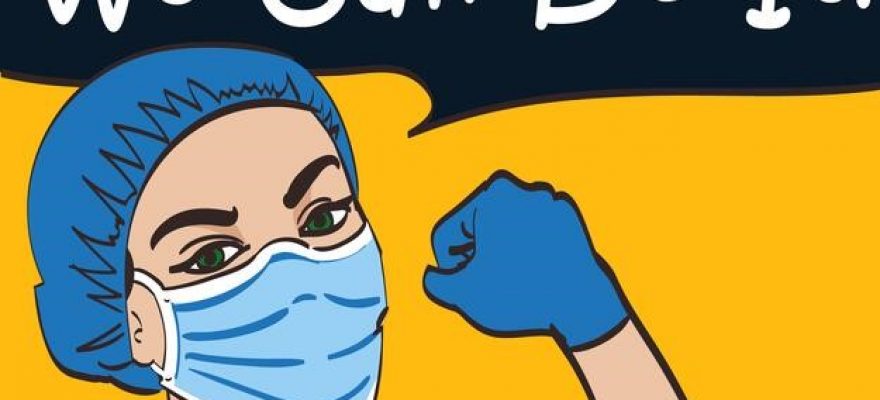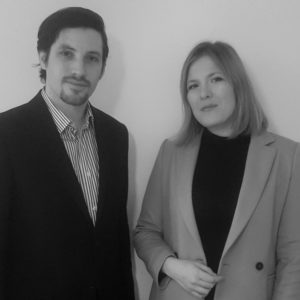

Sébastien Lachaussée & Elisa Martin-Winkel
Shooting in the time of COVID
In view of the health context and the difficulties raised by the COVID-19 pandemic, producers have to take many responsibilities and precautions in the context of the recovery of production’s operations and film shootings. Shooting can take place but producers must implement specific measures.
- Producers’ obligation to offer a safe workplace
Pursuant to article L.4121-1 et seq. of the French labor code, an employer has a safety obligation towards his employees. It consits notably of setting up an organization and appropriate means as well as inform and train its employees.
In the context of the Covid 19 health crisis, in order to facilitate this mission for producers, a guide to health safety recommendations for audiovisual, cinematographic and advertising films production activities was published in June 2020 by the French Health and Safety Committees for cinematographic and audiovisual production.
Some national and local authorities also established further instructions to be observed when filming with their support or on their territory, in particular regarding the restriction of the number of people on sets.
Producers need to follow instructions that vary according to the production phasis (preparation, shooting, post-production), the people involved, the production locations, etc. It is therefore important to study each situation in view of its specificities. Thus, it may be wise to entrust this study and the implementation of the measures to a person who will ensure their correct application.
Such « Covid 19 Adviser » is not an obligation but a useful tool for producers in the context of the implementation of their safety obligation. The establishment of the position may in particular be justified by the scale of the project and the required workforce. Conversely, when the workforce is very small, producer could assume such position directly.
It is also possible to call on members of the medical profession (nurse, doctors) to organize team monitoring.
- General safety instructions
Some guidelines are fairly stable and general advice can be applied by producers.
First of all, when possible, teleworking is encouraged, in particular for the development and post-production periods. Face-to-face working meetings will only be organized when strictly necessary.
It is also advocated to organize working spaces dedicated to a single project (studios, offices, workshops, sets), to keep the doors open within the premsies to avoid contact with the handles, to ventilate the workspaces and to proceed daily to cleaning and disinfection of premises.
Within the frame of in-person work, security obligations involves to organize the wearing of masks by technicians and providing them with such masks, with a change at midday to ensure their effectiveness. Producer must also provide the crew with points for washing their hands, with disposable hand towels or hydro-alcoholic gel. It is important to explain crew members when (before / after eating, before / after opening a door, before / after putting on their mask, etc.) and how (duration, method )to wash their hands.
Physical distancing must also be implemented (1 meter apart), for example by organizing work areas, markings on the ground, traffic plans etc., one-way traffic being privileged. As far as possible, the crew members assigned to a position will remain in close contact with only the members of the corresponding job. In addition, the crew members must favor remote communication between them ( phone, walkie-talkie, email).
In general, loan of equipment should be avoided and each technician must carry out regular cleaning of the equipment and surfaces he uses with disinfectant wipes and wearing disposable gloves.
Catering for technicians must also be strictly organized (schedules, placement 1 meter away) and no sharing of food or drinks is possible (no water fountain, no shared bottles or self-service buffet). Meals must be distributed on meal trays. The « snack tables » are not spared and access must be tightly controlled.
Likewise, the organization of transport must be taken into consideration by avoiding public transport and promoting carpooling – within the limit of one person per seat row, diagonally from the previous row – or even travel by foot or on two wheels engine. Wearing a mask must be maintained in all shared vehicles.
- Specific instructions for actors
Some scenes may involve to break the rules of physical distancing. In this context, Producers can take various measures.
As a priority, it is recommended to proceed with the adaptation of certain scenes provided for in the scenario or if possible that the actors wear a mask.
On the basis of the artists’ free will, it is possible to carry out tests and / or take temperature and / or set up quarantine periods, the terms of which must be fixed in their employment contract, or in an addendum.
Finally, the postponement of the shooting of one (or several) scene (s) to a time when the health risk will be reduced can be considered.
- Health status monitoring and patient care
It is important to monitor the health of technicians and actors.
In this context, they must be encouraged to watch out for symptoms suggestive of COVID 19 (fever, cough, nausea, loss of smell and taste, etc.) and in case of doubt to report to the production and stay at their home or place of accommodation.
It may also be interesting to organize a temperature measurement of the crew and actors prior they enter the workplace. However, no trace should be kept and all employees can refuse such temperature measurement.
Regarding testing, campaigns organized by companies for their employees are not allowed. An employee, on the other hand, is required to inform his employer in the event of suspected contact with the virus.
However, the organization of tests (making an appointment, on prescription, if applicable) by the producer seems to be possible on a voluntary basis in order to facilitate access for crew members to a laboratory.
Finally, a producer must be able to organize the isolation of a potentially ill employee and the care of all people in the team who have been in contact with such employee. Occupational health can then be requested.
In order to allow efficient working conditions, it is interesting to draft a document for technicians detailing and explaining the sanitary measures they must comply with. It is also necessary to display health instructions in all workplaces.
In this context, seeking advice from a specialized lawyer is wise in order to carry out an analysis of the risks and the solutions to implement to overcome such risks.
SHARE THIS ARTICLE
CONTACT
OUR OFFICES
INFORMATION
sl@avocatl.com
PHONE
+33.1.83.92.11.67
Address
121, boulevard de Sebastopol
75002 Paris
5th floor / Staircase A
Follow us :
Newsletter
Please enter your e-mail :
